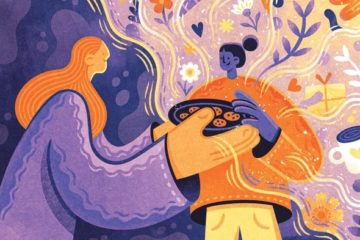Amit Kumar in Scientific American:
 Scientists who study happiness know that being kind to others can improve well-being. Acts as simple as buying a cup of coffee for someone can boost a person’s mood, for example. Everyday life affords many opportunities for such actions, yet people do not always take advantage of them.
Scientists who study happiness know that being kind to others can improve well-being. Acts as simple as buying a cup of coffee for someone can boost a person’s mood, for example. Everyday life affords many opportunities for such actions, yet people do not always take advantage of them.
In studies published online in the Journal of Experimental Psychology: General, Nicholas Epley, a behavioral scientist at the University of Chicago Booth School of Business, and I examined a possible explanation: people who perform random acts of kindness underestimate how much recipients value their behavior. Across multiple experiments involving approximately 1,000 participants, people performed a random act of kindness—that is, an action done with the primary intention of making someone else (who isn’t expecting the gesture) feel good. Those who perform such actions expect nothing in return.
More here.
